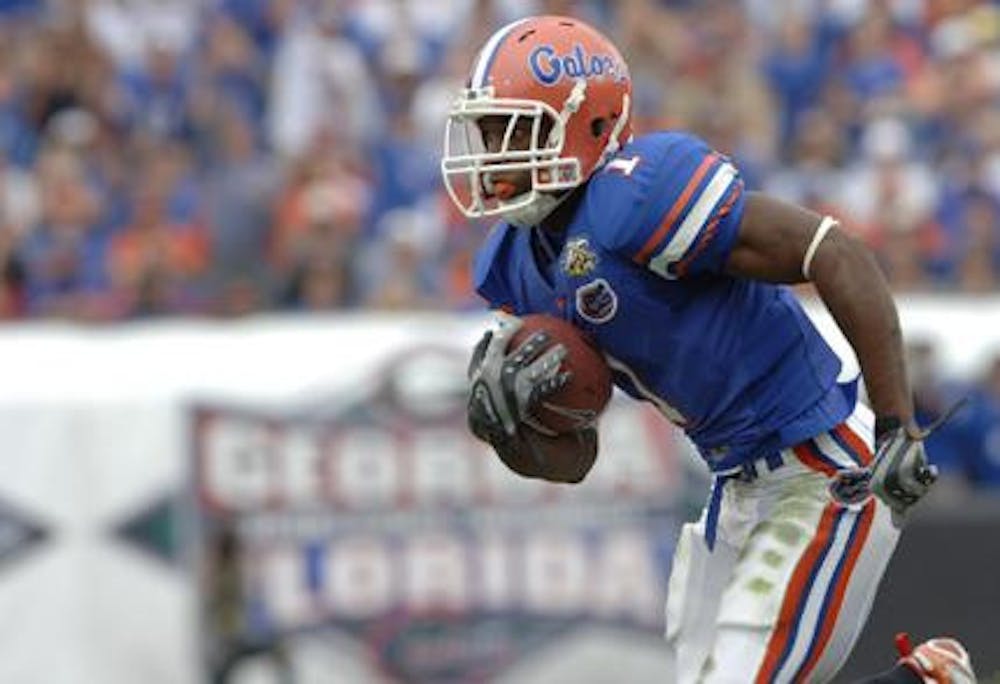Maurkice Pouncey may understand more than anyone how much one injury can impact a football team.
The right guard was injected into the offensive line when senior Phil Trautwein suffered a season-ending stress fracture during preseason workouts.
Pouncey himself suffered a high right ankle sprain against South Carolina, but he is expected to see considerable playing time against Florida Atlantic this Saturday.
Dealing with injuries is as much a part of a college football player?s life as the playbook, and players spend countless hours devoted to getting healthy for an upcoming game.
When the aches and pains pile up again, the players just repeat the cycle.
It?s a rough routine, but the long-term effects of the process can be truly horrific. A football career can leave a player?s body in ruins and result in brain damage, crippling or even death.
Looking that far down the road can be difficult in college, especially for members of the UF football team, who are locked in a heated battle for the Southeastern Conference crown.
BIt?s a tremendous concern,C UF wide receiver Percy Harvin said. BJust playing sports, you have to treat yourself like a professional athlete.C
Harvin, a sophomore, has sustained several injuries since arriving in Gainesville, including tendinitis in his heel that slowed him for several weeks.
BI had bad tendonitis earlier this year that came from last season,C he said. BI just kept blowing it off and it came back to haunt me this year.C
It took a talk with some team trainers to make Harvin realize the potential consequences of his injury, he said.
BMy trainer told me that something like that happened to (NFL defensive end) Simeon Rice, that he kept putting it off to the side and it came back to get him,C Harvin said. BThe trainers always told me that even if I have a little nick and I think it?s nothing, to get it treated anyway.C
The team?s trainers and doctors must do more than just treat injuries.
Dr. Peter Indelicato, head physician for the UF Athletic Association, said it is always tough to tell an athlete he is unable to play because of health reasons.
BOften there is a player who wants to play, but you feel that it isn?t in their best interests to play,C Indelicato said. BSometimes they find that difficult to accept initially, but that?s where you pull them in the office and explain the risk-to-benefit ratio to them.
BAfter they understand it better, the vast majority of them are thankful that there is somebody looking after their interests.C
While the players get caught up in the emotions of their season, Indelicato and his staff must treat them like any other patient.
BI think that we as doctors and athletic trainers, that?s our job, to inform them of the potential consequences of continuing their activities,C he said. BIt?s no different than any other patient that we have.C
The consequences for some past players have been dire. Many NFL players sustain head, back or joint injuries that leave them impaired for life.
ESPN analyst Jesse Palmer, a former Gators quarterback, can attest to the effects of a playing career on a body.
Palmer, 29, said he gets pains in his knees and back occasionally, despite never injuring either seriously.
Injuries can also be overlooked in the week-to-week world of college football, where every game is important.
BIt?s easy to forget, especially in this sport,C he said. BYou just take your body for granted. It?s important that you take care of yourself, do preventative things and listen to the training staff.C
After a brief career in the NFL, Palmer knows the potential harm that can be done to a body, but he has yet to pass his knowledge on to the current UF team, he said.
BI probably should,C he said. BIt?s a good message to tell kids.
BEveryone feels indestructible, especially at this age in college. You just feel like you won?t get hurt or that you are young and can recover. At the end of the day, it can come back sometimes.C






